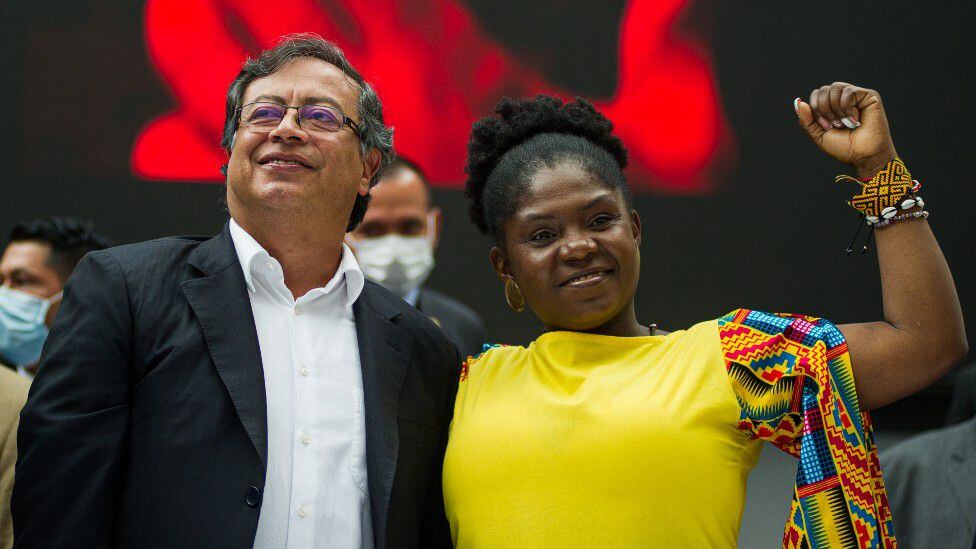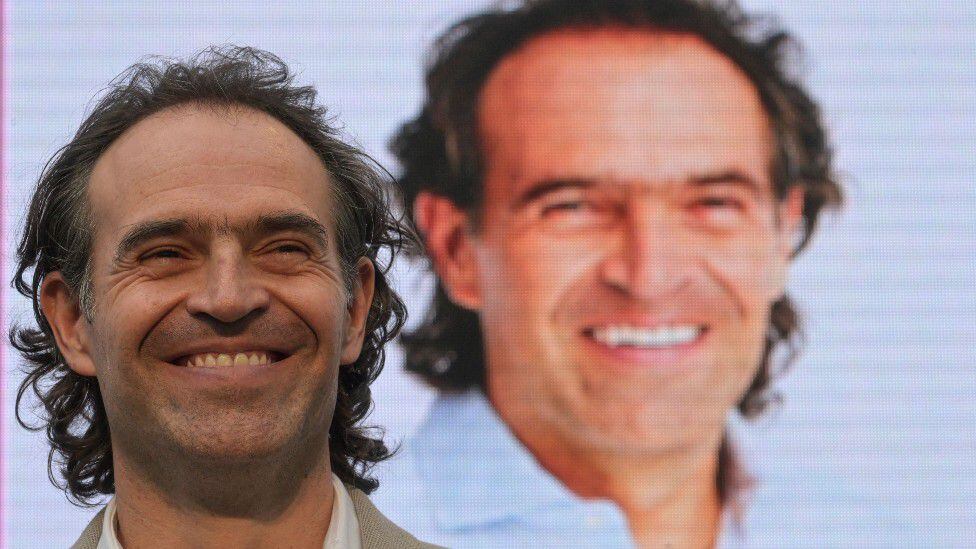After 60 years of conflict, this year Colombia is experiencing a presidential campaign in which little is said about war and peace.
According to data from the Green Lantern, an internet study center, between January and April of this year there was talk of peace on social media four times less than in the last presidential campaign, in 2018.
LOOK: The shrouded US visit to Ukraine where they announced US$713 million in military aid
Búho, a consultancy, reports that only 16% of the electoral news published in the media in the last 6 months took peace into account, while only 1.7% of opinion leaders spoke of the conflict in their columns .
The experts explain that this may respond to a change in the list of priorities of Colombians, which for the first time, according to a survey by the Democracy Observatory of the Universidad de los Andes, shows the armed conflict between fourth and fifth place of issues. considered important.
Before on the list, reports the survey, now they are health, economy and corruption.
In a country where presidents used to be chosen primarily for their stance on war, this change in the electoral agenda is a substantial development and, for many, historical.
“These are the first elections in the recent history of Colombia that take place in Latin America,” says political scientist Silvia Otero.
“Because the issue that made us exceptional, the war, was left aside and more normal issues such as inequality, education or corruption came into play,” adds the professor at the Universidad del Rosario.
This goes hand in hand, the experts point out, with another of the unprecedented facets of these elections: that for the first time a left-wing candidate is favored and critic of the establishment that ruled the country for decades.
That candidate is the senator and former guerrilla Gustavo Petro, who, due to his controversial proposals, has been one of the main supporters of this new electoral agenda.
what happened to peace
The signing of peace with the Revolutionary Armed Forces of Colombia (FARC) in 2016 demobilized the largest guerrilla group in the country, but since then the violence has remained in force through massacres of the civilian population, assassinations of social leaders and the confrontation between the army and other armed groups, including the so-called FARC dissidents and the National Liberation Army, a guerrilla group
The permanence of violence, however, did not prevent concern about it from changing.
The political scientist Juan Fernando Galindo, director of Búho, sees two reasons to explain the evaporation of peace as the central theme of the campaign.
“On the one hand, I think peace is a minefield that no one wants to get into“, he says, on an issue that deeply divided Colombians during the four years of peace talks.
The current president, Iván Duque, was elected in part thanks to his rejection of the peace agreement signed by his predecessor, Juan Manuel Santos. His great platform was the plebiscite that endorsed the agreement, in which the “no” vote won.
“It is an uncomfortable issue for all the candidates, because they know that it is central to their eventual government, but at the same time they know that on campaign is too polarizing and it is not profitable electorally”.
On the other hand, Giraldo continues, “I believe that a natural effect of a peace process is that other areas of conversation are opened, because almost the main promise of peace was to remove the veil of war that covered all the complexity of the country. “.

Silvia Otero agrees, and stresses that this change in the public conversation is not entirely new, but has three antecedents: the signing of the peace agreement and the two social outbreaks that the country experienced in 2019 and 2021.
“The 2019 protests were an awakening for Colombian society, because we realized that there were deep demands on a variety of issues ranging from whales to moors, through education and labor contracts,” he explains.
Until then, analysts agree, the protests in Colombia had been easily disqualified by the State when it pointed out that they were infiltrated by the guerrillas. There was a certain consensus in academia that the Colombian population, unlike its neighbors, “does not protest.”
“But then, in 2021, when people already realized that they could not qualify as guerrillas, they came out to protest with more forcethere yes, for very deep issues, such as inequality and corruption, “says Otero.
Peace with the FARC, then, opened up a range of problems that for years were absent from presidential campaigns.
“But it’s not that we’re talking about these issues with sophistication, mind you,” warns Otero. “We are just beginning the hard road to normalitybut it is a fact that other problems until now overshadowed that came out of the closet”.

What is he talking about
Instead of peace, Green Lantern studies of social media, presidential debates, and media coverage have found that people are talking about issues like pensions, structural reforms to the economy like expropriation and oil exploitation, and the use of inclusive language. .
“These are issues that the Historical Pact (the coalition led by Petro) brings to the agenda, but they find strong reactions on the internet that make many people talk,” says Cristina Vélez, director of Linterna Verde.
The political scientist also adds: “Talking about these issues does not necessarily mean that people are more progressivebecause the reaction we have seen on issues such as abortion shows that there is also a great mobilization against reform”.
For or against Petro’s proposals, the “new” issues are on the table.
Colombia is one of the most unequal countries on the planet, social mobility is usually tied to patronage and corrupt mechanisms, public health and education systems are considered inefficient and undemocratic, and access to formal jobs remains one of the most difficult in the region. .
Vélez, who devoted himself to journalism until recently, says: “I have been covering elections since 2006 and I have never seen so much importance given to economic and social policy issues or problems such as racism or women’s rights.”
“That’s where people’s concerns lie,” adds Otero. “The fear is no longer that they will kill you or kidnap you, but that you will not be able to pay your bills or not have an education.“.
Regardless of who wins the presidential elections, the long and intense electoral campaign has shown that Colombia, even with current violence, is no longer that country overshadowed by its own war.
Source: Elcomercio

:quality(75)/cloudfront-us-east-1.images.arcpublishing.com/elcomercio/UYTGSGDXBNGOJPNINFMMHTFGRA.jpg)

:quality(75)/cloudfront-us-east-1.images.arcpublishing.com/elcomercio/ERRMCL5IGJFZNFIZUKXWTPMONQ.jpg)
:quality(75)/cloudfront-us-east-1.images.arcpublishing.com/elcomercio/3CWKLWZLY5HPJNY5EHVUECGJLQ.jpg)


